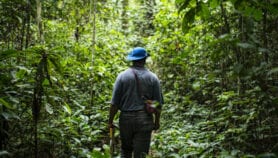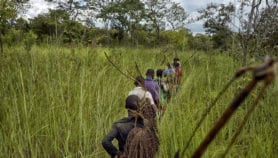By: Wagdy Sawahel
Send to a friend
The details you provide on this page will not be used to send unsolicited email, and will not be sold to a 3rd party. See privacy policy.
Policies for combating global climate change do not always benefit the communities that are poorest and most vulnerable to its effects, according to a set of 14 papers published by a UK-based research institute.
The papers by the International Institute for Environment and Development (IIED) identify a range of problems with existing policies for combating climate change.
They suggest ways to ensure that policies benefit the most vulnerable communities and do not compromise their economic development.
One paper argues that the Kyoto Protocol’s Clean Development Mechanism (CDM) has brought little benefit to the world’s poorest communities.
It says that most CDM projects — in which wealthy countries offset their emissions of greenhouse gases by investing in emission cuts in developing nations — are large-scale and concentrated in a few larger developing countries.
According to a World Bank survey, between January 2005 and March 2006 China accounted for two thirds of the contracted volume of emission reductions for CDM projects.
In contrast, Africa accounted for only two per cent of emission reductions.
The high transaction costs of CDM projects are partly to blame for this, Maryanne Grieg-Gran of the IIED, a co-author of the paper, told SciDev.Net.
She explained that the costs are high because of the procedures involved, with different approvals required from the CDM board and the host country before a project can go ahead.
This is compounded by the fact that "concluding deals under the CDM in developing countries is more expensive, time-consuming and risky than buying carbon credits elsewhere", says the report.
Instead, voluntary carbon offsets outside of the CDM offer greater potential to benefit the poor, as they involve less complex procedures and give more scope for small-scale projects.
Another paper highlights an important flaw in the CDM, which allows carbon credits for re-planting forests but not for avoided deforestation, despite the fact that tropical deforestation contributes a quarter of global carbon dioxide emissions.
It reiterates calls that financial mechanisms be put in place to provide positive incentives for developing countries to reduce their emissions from deforestation (see Trading carbon could reduce deforestation).
Another paper calls for international conventions on biodiversity, desertification and climate change to be brought into line.
"Ignoring the links between biodiversity and climate risks exacerbates the problems associated with climate change and represents a missed opportunity for maximising co-benefits," warns the report.
According to the Stern Review on the Economics of Climate Change published by the UK Treasury last month (30 October), climate change could shrink the global economy by up to 20 per cent.
But acting now to combat the threat would cost just one per cent of global gross domestic product (GDP).
"It is essential that policymakers respond [to the Stern Review] by making choices that do not harm the countries that have contributed least to climate change and are likely to suffer most from its effects," said Camilla Toulmin, director of IIED.
The IIED policy papers were published online last week (3 November) ahead of the UN Climate Change Conference held from 6-17 November in Nairobi, Kenya.













